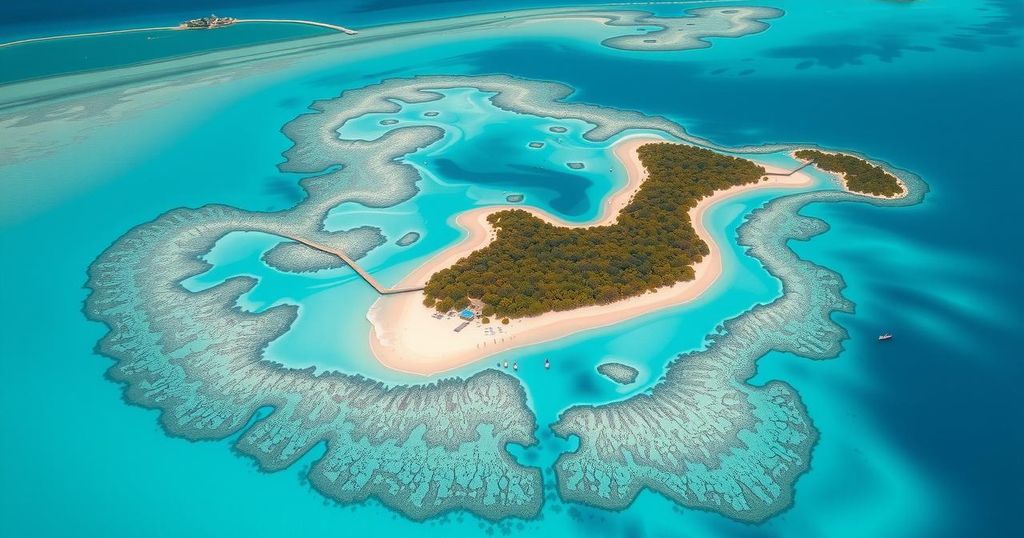The United States supports a deal between Britain and Mauritius regarding the return of the Chagos Islands, where the U.S. military base is located. Prime Minister Ramgoolam of Mauritius calls it a “great victory.” British PM Keir Starmer emphasizes the deal’s importance for national interests amid earlier legal challenges from the Chagossian community.
The recent announcement from the United States applauding Britain’s agreement to return the Chagos Islands to Mauritius has stirred considerable attention. On Thursday, Secretary of State Marco Rubio commented that this move secures the operations of the crucial U.S.-UK military facility at Diego Garcia. This facility is key for both regional stability and broader global security concerns.
Prime Minister Navin Ramgoolam of Mauritius hailed the deal as a significant achievement for the nation. He described it as a “great victory” that wraps up a long journey toward decolonization that started back in 1968. Ramgoolam’s sentiments reflect the aspirations of many Mauritians who have long sought control over these islands.
This agreement comes after British Prime Minister Keir Starmer signed a deal to return the strategically significant islands, which were once home to a population forcibly removed by Britain over fifty years ago. Starmer noted that the deal ensures continued access to military resources and declared it the only practical solution to maintaining operations at Diego Garcia.
Under the terms, Britain will pay Mauritius £101 million ($136 million) every year for a duration of 99 years in exchange for access to the base. Starmer estimated that factoring in inflation, the total cost to the UK over the lease period could reach approximately £3.4 billion.
Starmer stressed that this move aligns with Britain’s national interest, despite opposition and earlier legal challenges. Earlier, in the morning, the signing faced delays due to a court ruling from two Chagossian women, who sought to halt the agreement. The High Court eventually lifted the injunction, allowing the deal to proceed, citing the national interests at stake.
Yet, the sentiments of the Chagossian community remain mixed. Bertrice Pompe, one of the women who contested the deal, expressed her disappointment, saying that handing over rights to Mauritius feels wrong. Her feelings highlight the ongoing complexities surrounding the history of displacement and governance of the islands.
The Chagos Islands, located in the Indian Ocean, were originally colonized by France and later ceded to Britain. The British government separated them from Mauritius in 1965, leading to the forced eviction of the island’s inhabitants to establish a military base, which has been classified as one of the most significant U.S. military installations.
Decades of legal battles have ensued since then, including a notable UN ruling in 2019 demanding Britain return the islands. While the military base has served important strategic purposes during conflicts, it has also been the source of ongoing disputes regarding sovereignty and rights of the indigenous Chagossians.
Since their eviction in the late 1960s and early 1970s, the Chagossians and their descendants have found themselves spread across Mauritius, Seychelles, and the UK. Despite attempts to return, the British government has continuously blocked resettlement, defending its stance by citing security concerns and the protection of the islands as a marine area.
Ultimately, the return of the islands to Mauritius signifies a major milestone in a colonial narrative that has spanned over half a century, yet it also brings to light the unresolved issues regarding the rights of the displaced islanders who still seek recognition and restitution.
In conclusion, the U.S. has welcomed Britain’s recent deal to return the Chagos Islands to Mauritius, a move seen as pivotal for regional security and military operations. Mauritius’s Prime Minister celebrated the agreement as a long-desired victory for his nation. However, the deal has reignited discussions about the rights of the Chagos islanders, who continue to feel displaced and unheard in this negotiation. This situation underscores the intricate legacy of colonialism and the ongoing struggles for justice and sovereignty.
Original Source: www.eurasiantimes.com






